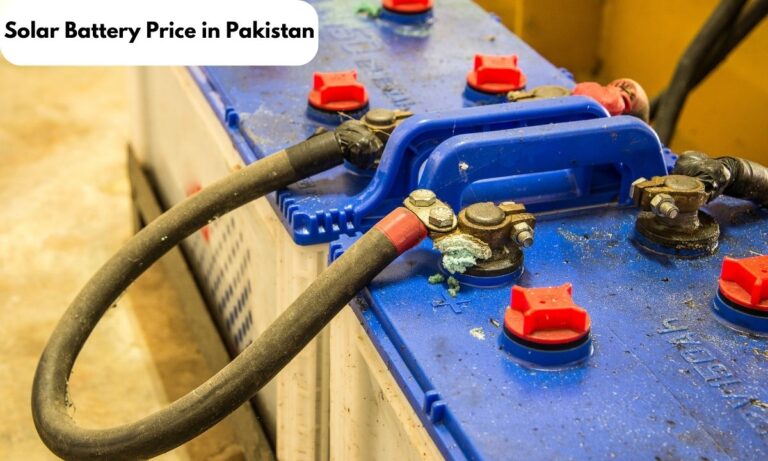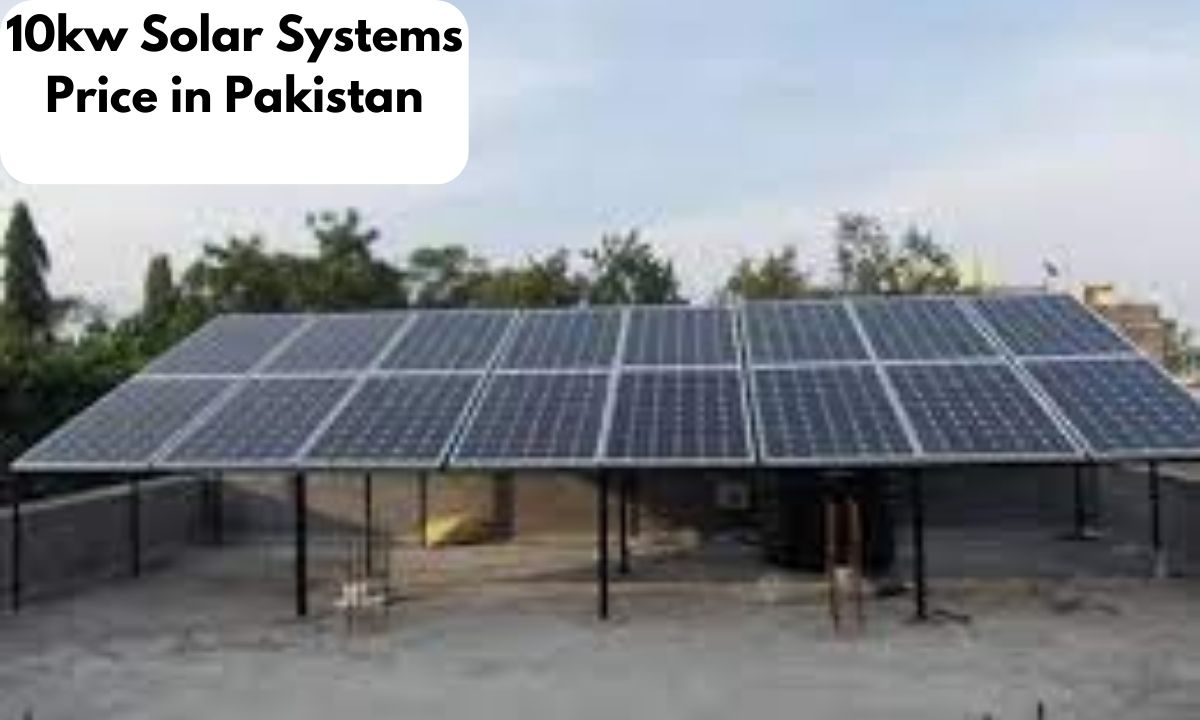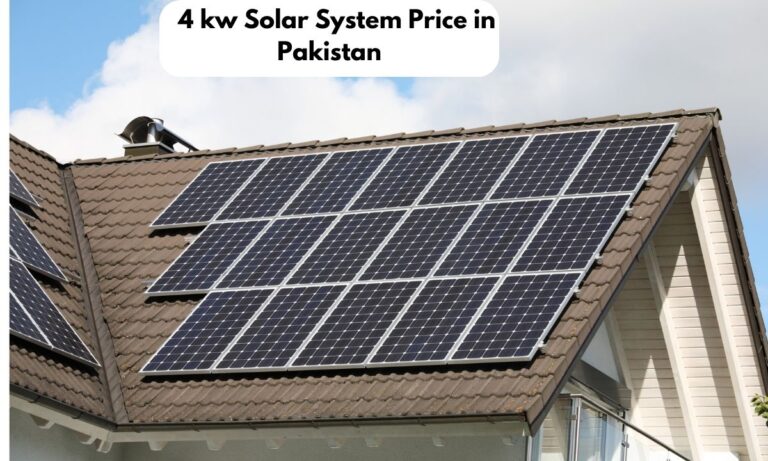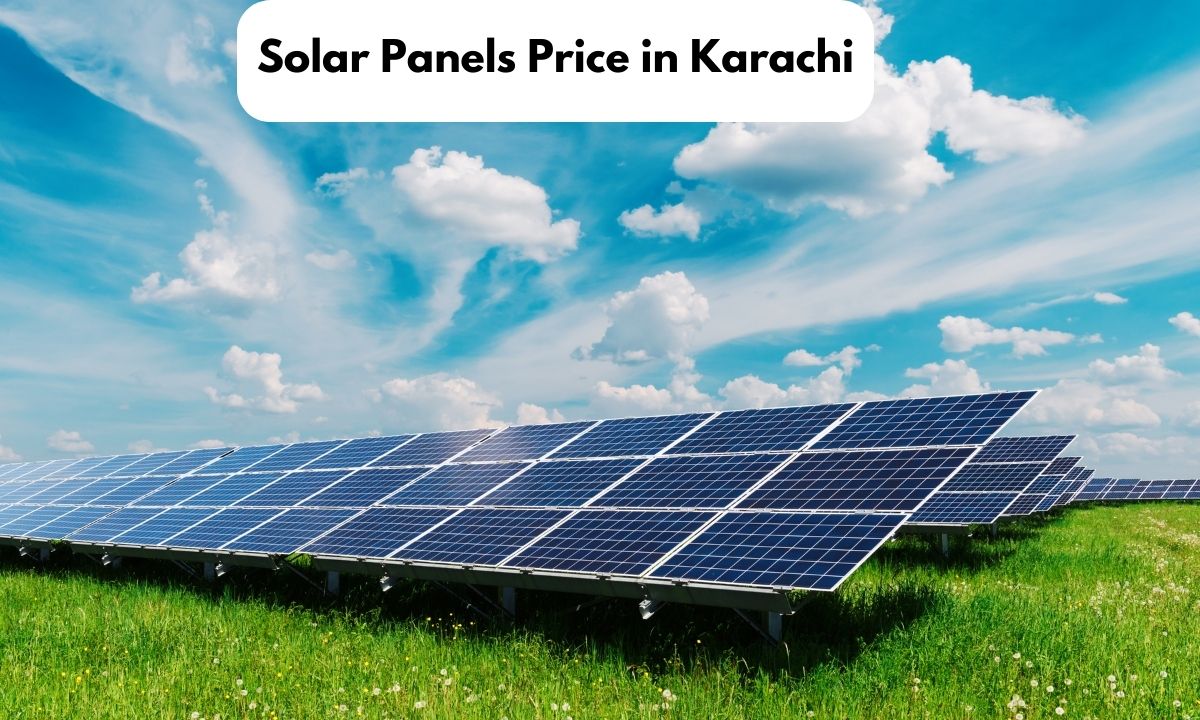400-watt solar panel price in Pakistan (2024 Price Guide)
As the solar energy scene in Pakistan expands, there’s a growing need for energy solutions that are both effective and budget-friendly. Enter the 400-watt solar panel, a sought-after choice for homes and businesses alike. Why? A popular 400-watt solar panel, like the MaxPower 400W Mono Perc Half-Cut Solar Panel, comes in at around Rs. 40,000. It might seem like a hefty upfront cost but think of it as an investment.
You’re not just buying a panel; you’re contributing to a cleaner environment and, over time, saving some serious money. It’s a smart move for anyone keen on tapping into the sun’s power.
These panels can juice up your everyday gadgets and appliances, becoming a key player in Pakistan’s push for renewable energy.
In our journey through this topic, we’ll dig into what influences solar panel prices locally, compare them with global rates, and share some wisdom on installation costs and things you should consider. So, buckle up as we navigate the sunny side of Pakistan’s energy evolution.

Current Prices of 400-Watt Solar Panels in Pakistan
In Pakistan, the cost of 400-watt solar panels isn’t set in stone; it varies depending on the brand and the type of solar panel you’re eyeing. Take, for instance, the MaxPower 400W Mono Perc Half-Cut Solar Panel – it’s tagged at Rs. 40,000.
But mind you, this is just one example. The price can swing based on a few things like how well the panel works, the reputation of the brand selling it, and the type of solar panel it is (monocrystalline, polycrystalline, and so on).
Keep in mind, though, these prices can be a bit of a moving target. The efficiency of the panel, the brand name, and the type of solar tech it uses – all these factors dance around in the market, so the prices might shimmy and shake. To stay in the loop, it’s a good call to keep tabs on the latest prices. Reliable sources or even straight from the suppliers can give you the freshest numbers.
Factors Affecting Solar Panel Prices
Impact of Solar Panel Types on Pricing
The price of solar panels in Pakistan depends on the kind of solar technology they’re rocking. Monocrystalline solar panels, created from a single crystal structure, are champs in efficiency, and that makes them a bit pricier.
Now, shift to polycrystalline solar panels – they’re made from multiple crystal structures. Not as efficient, but they won’t hit your wallet as hard. The gap in prices between these two can be noticeable, mainly because those monocrystalline folks bring top-tier performance to the table, and that comes with a somewhat higher price tag.
Role of Efficiency and Brand Reputation in Cost
The efficiency of a solar panel is a critical factor that affects its price. Higher-efficiency panels can convert more sunlight into electricity, which means they can generate more power in a given area compared to less efficient ones. This makes them more desirable, especially in areas where space is at a premium, and as a result, they are often more expensive.
Brand reputation also plays a significant role in the pricing of solar panels. Established brands with a track record of reliability and performance tend to charge more for their solar panels. Consumers may be willing to pay a premium for panels from these brands due to the perceived quality and the warranty services offered.
Benefits of Investing in 400-Watt Solar Panels
Investing in 400-watt solar panels can bring about numerous advantages, encompassing long-term savings, environmental friendliness, and space efficiency.
Long-term Savings
By opting for solar panels, you pave the way for substantial long-term savings by slashing or even eliminating your monthly electricity expenses. If you install enough solar panels to meet your typical monthly power needs, your home could pocket a significant annual saving.
For example, a 400-watt solar panel, basking in sunlight and working efficiently, can churn out around 1.2 to 2 kWh of electricity daily. This energy production can offset a considerable chunk of your electricity usage, leading to reduced utility bills.
Environmental Friendliness
Solar panels are champions of renewable and eco-friendly energy. They work their magic by converting sunlight into electricity, reducing dependence on fossil fuels, and cutting down on greenhouse gas emissions. When you invest in 400-watt solar panels, you’re actively contributing to a more sustainable and environmentally conscious future.
Space Efficiency
Bigger and bolder, 400-watt solar panels generate more power per square foot of space, making them a perfect fit for installations where space is tight. This is especially handy for residential rooftop setups, where roof space is like gold dust. Their larger size means fewer panels are needed to hit that sweet power output, resulting in a more space-efficient installation.
What’s more, these panels outshine smaller counterparts in terms of total power output per square foot, meaning fewer potential points of failure since they essentially pack the power of four 100-watt solar panels into one.
Versatility
The versatility of 400-watt solar panels shines through as they can power a variety of appliances and devices, making them a fitting choice for residential solar systems. Not stopping there, they can be your go-to solution for off-grid applications, such as energizing RVs, boats, and an array of other devices. Their adaptability makes them a reliable and multifunctional asset in the world of solar energy.
Popular Brands and Models Available in Pakistan
In Pakistan, a variety of brands present their 400-watt solar panels, each packing distinct features, and warranties. Let’s delve into some popular choices:
Trina Solar Monocrystalline-400watt -TSM400: Trina Solar’s model comes with a 10-year replacement and an impressive 25-year performance warranty. Known for top-notch quality, Trina Solar has recently extended its residential module warranty from 12 to 25 years.
Maxeon Solar Panels: Maxeon stands strong with solar panels backed by a robust 40-year warranty (subject to terms and conditions).
Panasonic EVERVOLT® HK Black Series Solar Module, 410/400W: Offered in 410-watt and 400-watt models, these panels boast a complete 25-year warranty. Panasonic also features the EVERVOLT® H Series Solar Module, 410/400W, with similar specs and warranty.
Jinko Solar Panels: Renowned for their reliability, cost-effectiveness, and durability, Jinko solar panels are fit for installation anywhere in Pakistan, thanks to their resilience to various environmental conditions.
Canadian Solar Panels: Canadian Solar steps in with a variety of solar panels spanning different power ranges. Their claim to fame? Stringent quality control and in-house testing facilities.
MaxPower 400W Mono Perc Half-Cut Solar Panel: This model is up for grabs at Rs. 34,000 in Pakistan.
Huasun Solar Panels: Huasun sweetens the deal with a 15-year product warranty and a 30-year linear power warranty. Their guarantee? The module’s power will stay above 88% of the original by the end of the warranty period.
Phono Solar Panels: Phono Solar, a global leader in high-performance photovoltaic products, boasts affiliation with SUMEC Group, a subsidiary of the Fortune 500 corporation, China National Machinery Industry Corporation Ltd (Sinomach).
Features and Warranties
Various manufacturers bring their own set of features and warranties to the table. Take Trina Solar, for example, offering a 10-year replacement and an extended 25-year performance warranty. Maxeon steps up with an impressive 40-year warranty, and Panasonic offers a solid 25-year warranty. Huasun sweetens the deal with a 15-year product warranty and a 30-year linear power warranty.
Now, when it comes to features, let’s zoom in on some specifics. The Panasonic EVERVOLT® HK Black Series Solar Module boasts high module efficiency and superior high-temperature performance. On the other end, there’s the MaxPower 400W Mono Perc Half-Cut Solar Panel, known for its durability and pocket-friendly nature.
When you’re in the market for a solar panel, it’s not just about grabbing any old piece of tech. It’s about considering the nitty-gritty – the panel’s efficiency, how long it’ll last, what warranty it brings, and, of course, how much it’ll set you back. Don’t forget to weigh in with the manufacturer’s rep and check if the panel is a good fit for the local climate and where you plan to install it. It’s all about finding that perfect match.
Where to Buy 400-Watt Solar Panels in Pakistan
In Pakistan, whether you’re scrolling online or strolling through physical stores, there are several places to snag a 400-watt solar panel:
- W11Stop: Navigate this online store to find the MaxPower 400W Mono Perc Half-Cut Solar Panel, priced at Rs. 34,000.
- SolarTrade.pk: This platform is a solar haven, offering a range of panels, including the Cheetah Plus HC 78M 400Watt Mono Perc Half Cell Module.
- SmartSolar.pk: Dive into this online store for a choice between Jinko 400W, Cheetah HC 72M monocrystalline 400W solar panels, and even the Canadian Solar 400W panel.
- Ubuy Pakistan: Explore this online marketplace for a diverse selection of high-quality solar panels.
- PakSolarServices: Head to this website for a variety of solar panels, featuring brands like Jinko and Canadian Longi.
- SolarShop.pk: Check out this online store for the Canadian Solar 400W Mono PERC panel.
Whether you are a digital shopper or prefer the hands-on experience, these spots have your 400-watt solar panel needs to be covered. Happy hunting!
Tips for Finding the Best Deals and Avoiding Counterfeit Products
- When diving into the world of purchasing solar panels, it’s crucial to navigate wisely to secure a good deal and steer clear of knock-off products. Here are some savvy tips:
- 1. Vet Sellers: Stick to the tried and true – purchase your solar panels from reputable and authorized dealers or installers. Be cautious of unverified online marketplaces or sellers with dubious credentials.
- 2. Inquire: Don’t be shy to ask questions about the solar panel you’re eyeing. Seek details on its origin, manufacturing process, and performance. A reliable seller should provide clear and thorough information.
- 3. Seek Expert Advice: Before sealing the deal, consider consulting with solar energy experts or professionals. They can lend their expertise to help you choose the right panels and steer you away from potential counterfeits.
- 4. Local Compliance: Ensure the solar panels align with local regulations and standards. Staying within the bounds of the law is always a good practice.
- 5. Read Reviews: Genuine reviews are golden. They offer insights into the performance and reliability of specific brands and models, helping you make an informed decision.
- 6. Price Comparison: While everyone loves a good deal, if it seems too good to be true, it probably is. Exercise caution with prices significantly lower than the industry average. Such rock-bottom prices may signal counterfeit or low-quality panels.
- 7. Warranty Inspection: Legitimate solar panels always come with a manufacturer’s warranty. Be wary of sellers unable to provide warranty information – it’s a red flag.
Conclusion
The cost of a 400-watt solar panel in Pakistan, exemplified by the MaxPower 400W Mono Perc Half-Cut Solar Panel, hovers around Rs. 40,000. However, this figure isn’t set in stone, and it can swing widely based on factors like panel efficiency, brand reputation, and the type of solar panel (whether it’s monocrystalline or polycrystalline).
Now, when we widen the lens and compare these prices to the global market, it’s wise to factor in the worldwide average cost for solar panels. Internationally, the cost is commonly calculated per watt. The premium monocrystalline solar panels, known for their efficiency, typically come with a price tag between $1 and $1.50 per watt.
That translates to a 400-watt solar panel ranging from $400 to $600. On the flip side, the less efficient polycrystalline panels are more budget-friendly, usually at around $0.75 per watt, bringing a 400-watt panel to approximately $300.
In the Pakistani arena, the price per watt for local brands can dance between PKR 48 and 58, while international heavyweights like Longi and Jinko may sway between PKR 15 and PKR 27 per watt. This hints that while Pakistan’s prices can hold their own in the global competition, they might also lean towards the higher end, possibly due to added costs linked to importing and distributing solar panels in the country.





